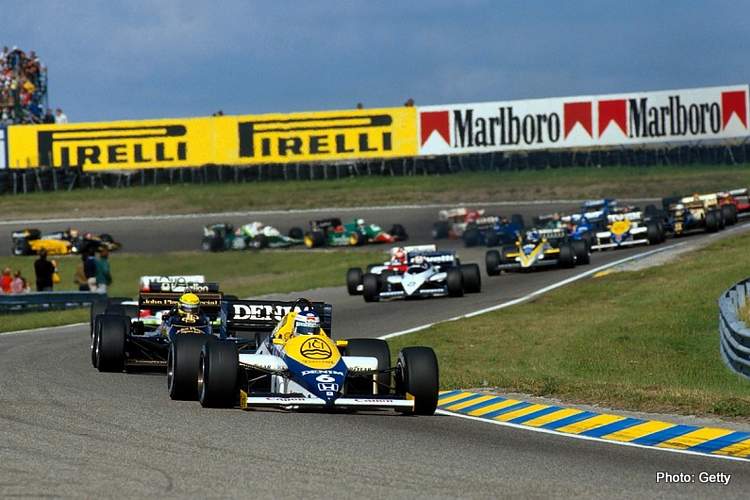Ayrton Senna Last Words: The Final Moments of a Racing Legend
Few names in the world of motorsport inspire as much reverence, passion, and emotion as Ayrton Senna. Widely regarded as one of the greatest Formula One drivers of all time, Senna’s career was a blend of breathtaking talent, fearless driving, and deep spirituality. Yet, as much as he is remembered for his spectacular victories and unmatched skill behind the wheel, his tragic death at the 1994 San Marino Grand Prix and his haunting last words have become an indelible part of his legacy.
This article takes an in-depth look at Ayrton Senna’s final day, his last words, and the impact they left on the racing world and beyond.
The Day That Changed Formula One
On May 1, 1994, Formula One experienced one of its darkest weekends at the Autodromo Enzo e Dino Ferrari in Imola, Italy. The San Marino Grand Prix had already been marred by tragedy. On Friday, Rubens Barrichello suffered a horrifying crash but miraculously survived. On Saturday, Austrian driver Roland Ratzenberger lost his life during qualifying. The mood in the paddock was grim, but racing continued.
Ayrton Senna, then driving for Williams-Renault, was shaken by these events. Known for his strong emotions and spiritual side, Senna confided in close friends and colleagues about his unease. He was visibly disturbed but resolved to race. For Senna, driving was not just a profession—it was his purpose.
Ayrton Senna’s State of Mind Before the Race
Those close to Senna reported that he spent much of the race morning in quiet reflection. He carried an Austrian flag with him, intending to wave it at the finish line in honor of Ratzenberger. His concern for others was consistent with his character: Senna was not just a competitor, but a human deeply attuned to life, faith, and tragedy.
Despite his determination, there was a noticeable heaviness about him. Friends recalled he seemed more serious than usual, almost as though he had a sense of foreboding.
The Crash That Shook the World
The race began at 2 p.m. local time. On the seventh lap, as Senna’s Williams FW16 approached the high-speed Tamburello corner, the car veered off the track at nearly 190 miles per hour. The vehicle struck a concrete wall. The impact was catastrophic, and a piece of suspension pierced Senna’s helmet, causing fatal head injuries.
Trackside medical teams reached him quickly, and the world held its breath. Millions of fans watching live coverage witnessed the shocking accident unfold. Helicopters rushed Senna to Bologna’s Maggiore Hospital, but after hours of desperate effort, doctors declared him dead. He was only 34 years old.
Senna’s Last Words
In the aftermath of his death, there has been much speculation and discussion about Ayrton Senna’s last words. Several sources give slightly different accounts, but what is consistent is that Senna spoke in his final moments, revealing his mindset, faith, and awareness even as life slipped away.
According to official reports and testimonies:
-
As doctors attended to him immediately after the crash, Senna briefly regained consciousness. He whispered softly, asking about the state of the race and his fellow drivers. This reflected his characteristic concern for others even in a moment of immense personal crisis.
-
Some accounts from medical staff suggest his final audible words were “Oh my God, oh my God, what’s happening?” A cry of confusion, faith, and human fragility as he drifted in and out of consciousness.
-
Others point to his final expressions being nonverbal, his eyes conveying fear and awareness before slipping into unconsciousness.
Although there is no single, universally agreed-upon statement of his exact last words, the most widely accepted account is that his final phrase included a direct call to God—consistent with his lifelong devotion to faith.
Senna’s Faith and Spirituality
To understand the power of Ayrton Senna’s last words, one must recognize his deep religious beliefs. Senna was a devout Christian, often vocal about how faith guided his career. He once famously said, “If you have God on your side, everything becomes clear.”
For him, racing was not just about competition; it was a spiritual journey. Many who knew him believed that his call to God in his final words was both natural and fitting, reflecting the essence of who Senna was—a man who combined courage with humility, speed with prayer.
The Aftermath: Mourning a Legend
When Senna’s death was confirmed, shockwaves rippled through the motorsport world and beyond. Brazil, his home country, entered a state of national mourning. His funeral was attended by millions, with the streets of São Paulo flooded by grieving fans.
Formula One, too, was forced into a moment of reckoning. Senna’s death, following Ratzenberger’s the previous day, made it impossible to ignore the dangers of the sport. His tragic passing became the catalyst for a comprehensive overhaul in safety measures, from car design to circuit modifications. Many believe that Senna’s sacrifice ultimately saved countless lives in the decades that followed.
The Symbolism of His Last Words
Ayrton Senna’s last words—whether a prayer, a cry of confusion, or a call to God—remain symbolic. They capture the vulnerability of even the strongest among us.
For fans, those words are more than just a fleeting phrase. They embody Senna’s humanity and spirituality. Despite his fearless reputation on the racetrack, his last words remind us that he was mortal, facing the unknown with faith.
The Legacy of Ayrton Senna
More than three decades later, Ayrton Senna’s legend endures. His name continues to inspire young drivers, and his story remains a touchstone in motorsport history. But his legacy extends beyond racing:
-
Philanthropy – After his death, Senna’s family revealed his plans to use much of his fortune for helping underprivileged children in Brazil. This vision materialized through the Instituto Ayrton Senna, which continues to support education and social programs.
-
Safety Reforms – Formula One became dramatically safer because of the changes prompted by the 1994 Imola tragedies. Today, devices such as the HANS collar and halo cockpit protector are part of Senna’s lasting influence.
-
Cultural Icon – Senna transcended sports. Documentaries, films, and books keep his memory alive. For Brazilians, he remains a national hero, representing determination, excellence, and hope.
Reflections on Mortality and Heroism
The fascination with Ayrton Senna’s last words stems not only from curiosity but also from what they represent: the collision of human greatness with human fragility.
In motorsport, drivers often seem invincible. Their reflexes, courage, and speed elevate them to almost superhuman status. Yet Senna’s last words remind us that even legends are bound by mortality. They are not just remembered for how they lived, but also for how they faced the ultimate moment of truth.
Conclusion
Ayrton Senna’s last words were not just a fleeting whisper at a racetrack in Italy—they became part of his story, his myth, and his message to the world. Whether they were “Oh my God” or a silent prayer, they reflect the deep faith, humanity, and courage of a man who gave everything to his sport.
Senna left behind not only a record of extraordinary skill but also a reminder of the importance of safety, spirituality, and compassion. His final words—like his career—still echo today, carried in the roar of engines, in the lessons of safety reforms, and in the hearts of millions who continue to be inspired by his legacy.
More than 30 years later, Ayrton Senna is still not just remembered as a champion, but as a symbol of passion, faith, and humanity. His last words, simple yet profound, remind us why he remains immortal in the history of Formula One and in the memories of all who admired him.














Post Comment